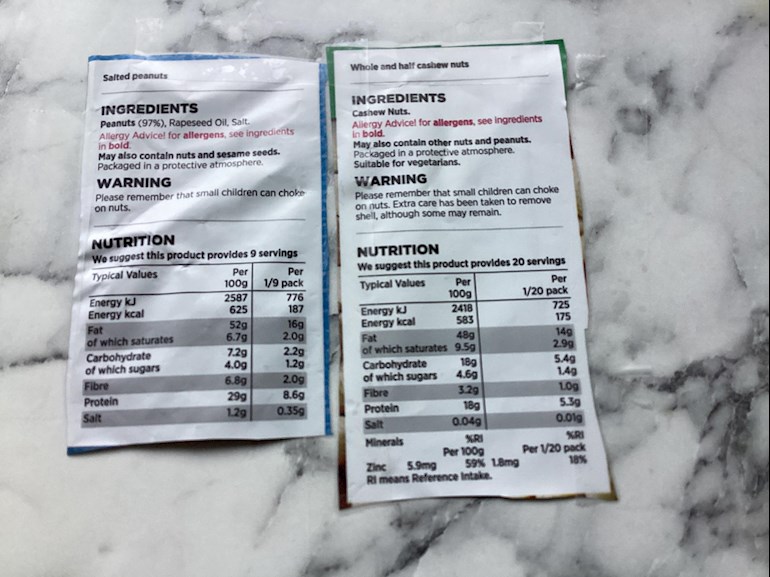Photo below give nutrition information on nuts.
Cashes nuts.
5.3 g of protein on 30g of nuts. I can control the protein intake by measuring the amount of nuts I eat per day.
Peanuts
8.6 g of protein in 30 g of nuts.
Again I can control the amount of protein per day.
The problem that I have is how to check the protein on home cooked food.

